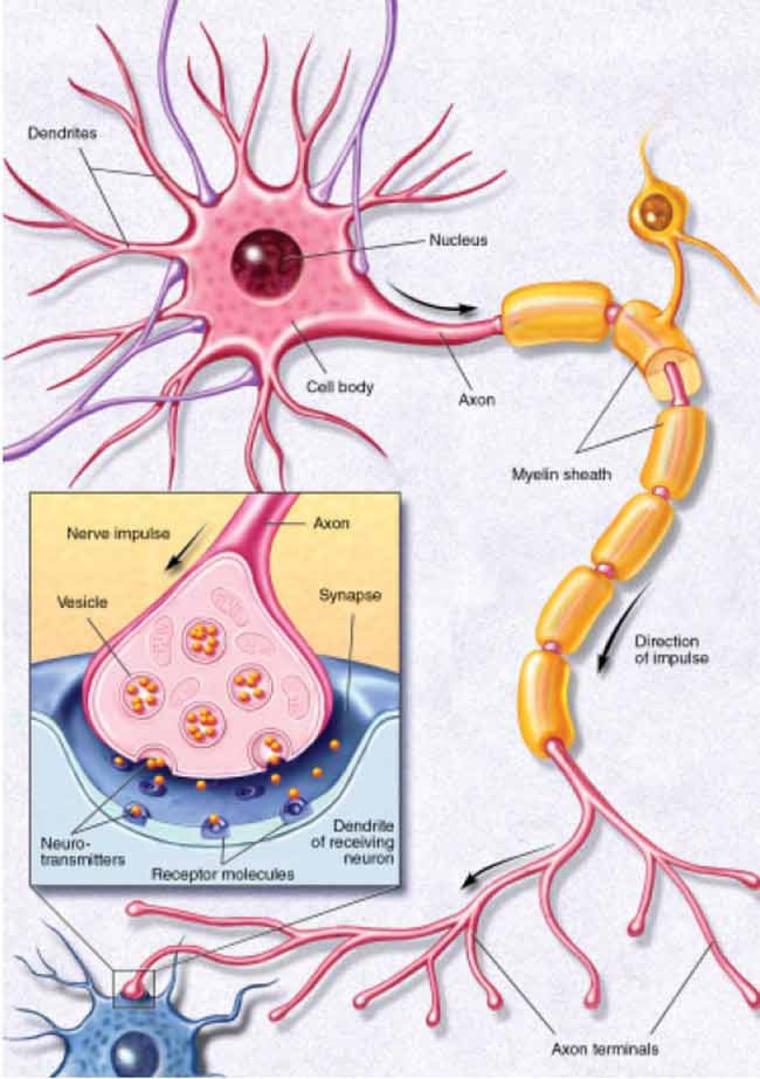Highways in the brain thought only to transport information passively from one brain cell to another can actually boost or dampen the traveling signal, a new study suggests.
The results, found in mice, could explain how nicotine in cigarettes enhances mental sharpness in humans, a phenomenon documented in several past studies.
"We don’t intend to say cigarettes are good by any stretch of the imagination," said study team member Raju Metherate, a neurobiologist at the University of California, Irvine. "But one reason [that] people probably like cigarettes is because it probably enhances their thinking ability."
Well-connected
Until now, neuroscientists thought hair-like extensions called axons were like the "wires" in a radio, conveying signals between brain cells.
“But we found that if you stimulate the axon, the signal can be altered, like turning the volume knob on the radio,” Metherate said.
The scientists studied a region in the mouse brain associated with hearing that contained a brain cell with an axon connected to the brain's cortex. Like many axons in the brain, this one contains a receptor that is activated by acetylcholine; nicotine from cigarettes also binds to the acetylcholine receptor.
In their experiments, the scientists either stimulated the axon with nicotine or did not apply nicotine. Without nicotine, about 35 percent of the messages sent by the brain cell reached the cortex, while the success rate jumped to nearly 70 percent with nicotine.
To confirm the nicotine was acting on the axon itself and not the initial brain cell or the destination (called the terminal), they added the nicotine only to the axon and also isolated the axon. The results held in both cases.
Multiple solutions
Metherate said the implications range from the effects of cigarette smoking to treatments for psychiatric disorders to the basics of how the brain works.
"Nicotine enhances cognitive function, that's been documented in dozens of studies, but people really haven't understood why," Metherate told LiveScience. "This is probably one major reason it's enhancing cognitive function, because it's allowing the cortex to be more sensitive to incoming input."
The finding, published online in the Aug. 19 edition of the journal Nature Neuroscience, also has implications for certain mental illnesses, such as schizophrenia, which have been associated with nicotine abuse or the loss of nicotine receptors.
